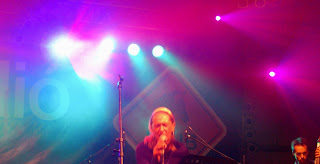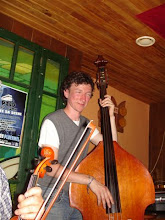















...........all pictures Dylan James...............[Erdély/Transylvania, August 2009...]....................language at walk


 Two years ago, for the first time, I was waking up in a big room, lying on a home-made mattress. It was a first taste of freedom, after an evening spent discovering cheep pints of Borsodi beers and discussing the little experience I had as an independent individual. This had been the first evening on the verge of discovering a new country, discovering myself in a new life. This was not the oriental dream of going east, it was pursuing an urge to travel east of Berlin I inherited from high-school exchanges. I had finished the evening walking along the beautiful Duna with my host, completely drunk and sobbing a broken heart, half-tears, half-részeg. Részeg, for pissed. Stuff I didn't know at the time, having only just nearly registered some of the basic national drink-greeting vocabulary. I was waking up to the smell of something half-pancake, half-bread, or even half-cake. Confusion was such I could easily have analyzed the situation in reference to three halves of a whole.
Two years ago, for the first time, I was waking up in a big room, lying on a home-made mattress. It was a first taste of freedom, after an evening spent discovering cheep pints of Borsodi beers and discussing the little experience I had as an independent individual. This had been the first evening on the verge of discovering a new country, discovering myself in a new life. This was not the oriental dream of going east, it was pursuing an urge to travel east of Berlin I inherited from high-school exchanges. I had finished the evening walking along the beautiful Duna with my host, completely drunk and sobbing a broken heart, half-tears, half-részeg. Részeg, for pissed. Stuff I didn't know at the time, having only just nearly registered some of the basic national drink-greeting vocabulary. I was waking up to the smell of something half-pancake, half-bread, or even half-cake. Confusion was such I could easily have analyzed the situation in reference to three halves of a whole.
 Strange is a small word in a lunatic world of mad stories.
Strange is a small word in a lunatic world of mad stories.




 From Jazz to World Music, I find Hungarians (often the same musicians too) busy with the same fusions, at the same time aspiring for more as in any active culture - the boundaries between interpretation and composition are always pushed back by playing. To play music bares its own meaning, but as for all pleasant games, it is one played with others, and specifically for others.
From Jazz to World Music, I find Hungarians (often the same musicians too) busy with the same fusions, at the same time aspiring for more as in any active culture - the boundaries between interpretation and composition are always pushed back by playing. To play music bares its own meaning, but as for all pleasant games, it is one played with others, and specifically for others.











